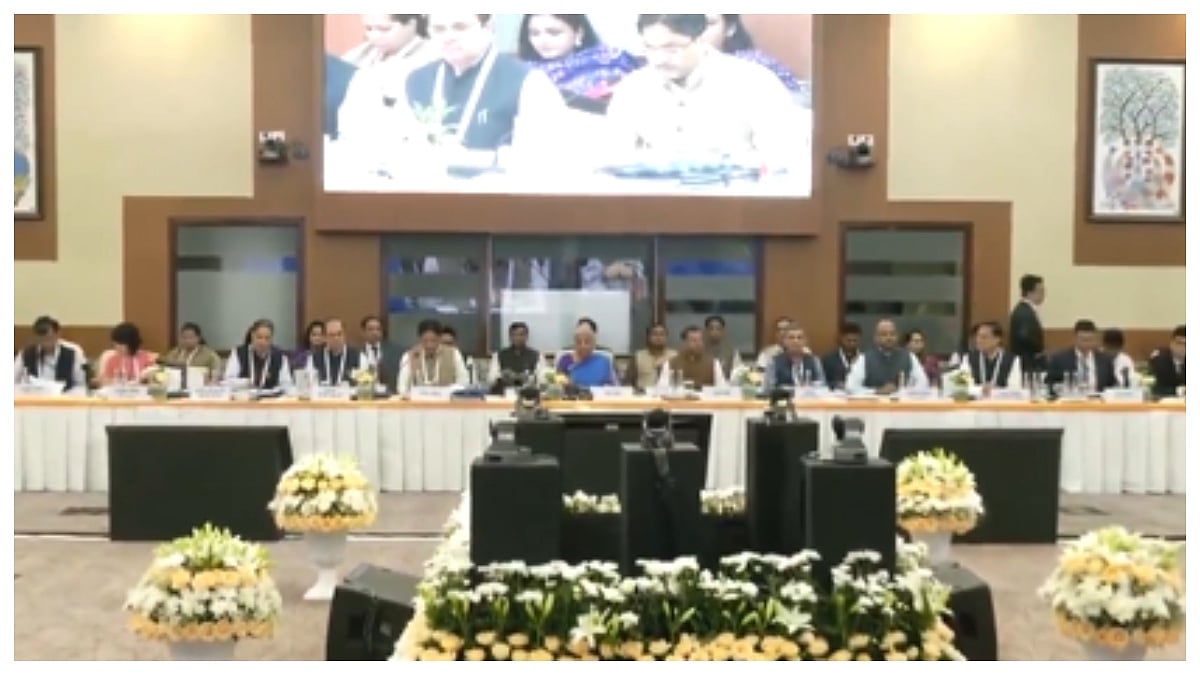Business sector is one of the key partners in achieving United Nations Sustainable Development Goals (SDGs). Like other countries, in India as well companies are increasingly aligning themselves with the SDGs. Even the recently unveiled SDG India Index report recognises business as a key sector and their efforts in this direction.
On this World Environment Day, which is held every year on June 5 to create awareness and action for the protection of the environment, there is a need to understand how companies are trying to align with this cause and using technologies and strategies to achieve environmental sustainability. It cannot be forgotten that many of the economic activities generate carbon emissions.
Abhinav Gupta, CEO, ActiveBuilding said, “Indian businesses suffer a loss of USD 95 billion annually due to air polluting industries like construction, oil, chemical and others. As organisations become aware of their carbon footprint, they should also understand their “air pollution footprint” and bring it down to zero. This will be critical as the business cost of pollution continues to pile up on our economy and social environment too.” According to a report, air pollution is responsible for 18 per cent of all deaths in India in 2019, translating to a loss of 3.8 million workdays. In 2019, India had 1.7 million deaths linked to air pollution, incurring an economic cost of USD 45 billion, the study had stated.
The construction industry, especially cement, is known for causing problems such as dust emission which not only reduces visibility and impacts air quality but also contains toxic metal and compounds. But these industries are attempting to change as well.
Large cement players LafargeHolcim and Ambuja Cements aspire to achieve Net Zero plan. Commenting on this, Neeraj Akhoury, CEO India LafargeHolcim and Managing Director & CEO of Ambuja Cements Ltd said, “Both Ambuja Cement and ACC are aligned with their global parent LafargeHolcim’s Net Zero plan and sustainability strategy. Sustainability is one of the strategic priorities for both the companies. ACC and Ambuja’s Sustainable Development Plan 2030 has a sharp focus on climate and energy, building a circular economy, conserving resources and nature, and driving meaningful change in the lives of communities.” He added both the companies aim to reduce their CO2 footprint, reuse waste and be many times water positive.
Yet another polluting industry is power. Many players in space have already committed to UN SDGs. Recently, state-run power utility NTPC has become a signatory to the prestigious UN Global Compact’s CEO Water Mandate. NTPC has already taken a series of measures across its plant locations on sound water management. NTPC will further imbibe the 3 R’s (reduce, reuse, recycle) for water conservation and management while carrying out its core business activity of power generation.
In addition, industry like animal husbandry has a significant impact on the world environment. According to a 2017 study, it is responsible for 20-30 per cent of the freshwater usage in the world. Meanwhile, livestock, and the production of feed for them, occupy about a third of the earth's ice-free land. There are other activities also that lead to pollution in this industry.
So to do their bit in environmental sustainability, dairy player Mother Dairy Fruit & Vegetable Pvt. Ltd. (MDFVPL) has committed towards a cleaner environment. The company has collected and recycled/co-processed 7,284 MT of post-consumer used plastic waste in the country till March 2021. The overall volume includes both Multi-Layered Plastic (MLP) and Single Layered Plastic (SLP) waste. Manish Bandlish, Managing Director, MDFVPL said, “We are the first company amongst the Indian dairy co-operatives to acquire registration under Central Pollution Control Board (CPCB) as well as implementing EPR. Our efforts have always been aligned towards a holistic approach of collecting and recycling/co-processing post-consumer used SLP and MLP waste. The company stands committed to prolong these efforts and strengthen the momentum going ahead.”
Logistics company Blue Dart, a part of the Deutsche Post DHL Group (DPDHL), announces paperless transactions on their new digital portal for all its vendor partners this World Environment Day on June 5, 2021. The online launch event of this paperless technology is a registered event with UNEP for the celebrations of World Environment Day. Blue Dart recognises the importance of fighting climate change and is integrating robust ESG mechanisms into this decade of ecosystem restoration.
Blue Dart has executed over 50 per cent of its customer invoices online and is working towards achieving a 100 per cent transition. Manufacturing paper is energy-intensive; one A4 sheet requires approximately 50 watt-hours.Currently, Blue Dart plants 111,000 trees every year, in order to offset 22,20,000 kg carbon per year on maturity. Balfour Manuel, Managing Director, Blue Dart said, “It is up to the world’s large organizations and the conglomerates to change the future landscape of Global Warming and Blue Dart is proud to be taking several steps forward to aid this cause.”
Technology and innovation
In 2020, there was a focus on investments that would be rebuilding economies in a sustainable way and keeping emissions lower while promoting growth. Ravichandran Purushothaman, President, Danfoss India stressed for India to emerge as an economic powerhouse, the move towards building a net-zero economy needs to be accelerated.
The ninth SDGs is around building resilient infrastructure, promoting inclusive and sustainable industrialisation and fostering innovation. This will facilitate sustainable development among businesses. Purushothaman added, “The need of the hour is for global megatrends such as digitalisation, electrification and industrialisation to evolve in its approach towards sustainability. To enable this, companies should work towards a sustainable transformation by setting up science-based targets and striving to emerge as ESG role model companies for the future. This will in turn power a green restart and speed-up a sustainable transition for a better tomorrow.”
Adding to the need to embrace technology and data collection, Agendra Kumar, Managing Director, Esri India, said, “GIS (Geographic Information System) has been the core technology behind many programmes focused on river rejuvenation, forest management, ocean conservation and more. GIS knowledge and geospatial infrastructure provide valuable insights for better understanding, collaboration and timely decisions for restoration of our ecosystem and sustainable future.” Thus, he stated spatial thinking is essential for the country to understand the causes and magnitude of environmental challenges to tackle them.
According to George Rajkumar, Country President, Grundfos India, the best way forward in managing water and in turn the ecosystems will be a “combining traditional knowledge with practical policies at the grass-root level and the adoption of sustainable technology and solutions”.
Gupta added, “Private sector must realise — taking care of the environment is an investment in safeguarding our collective future. The tools to track pollution and reduce it are out there, they just need to use it and get results.”
Meanwhile, sustainable designs are not just limited to material intervention, but a detailed layered approach would determine design success, stated Revathi Kant, Chief Design Officer, Titan Company. “At Titan, we are focusing on minimalism, creating recyclable products, environment sustainability and social well-being. We are on the journey of being a water positive and a neutral carbon footprint company."










